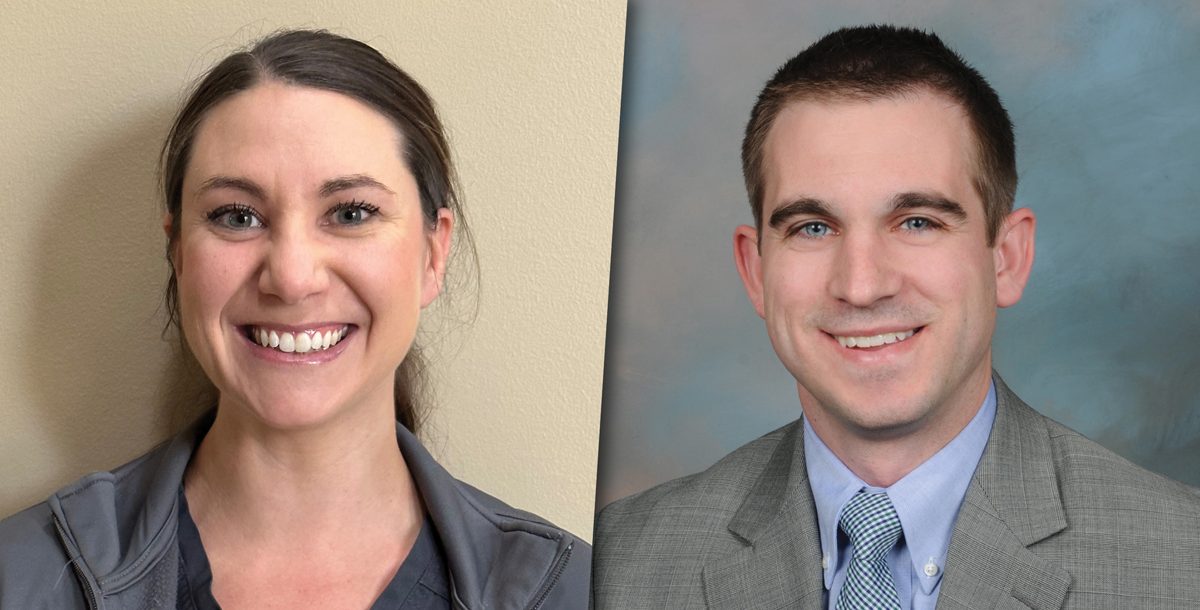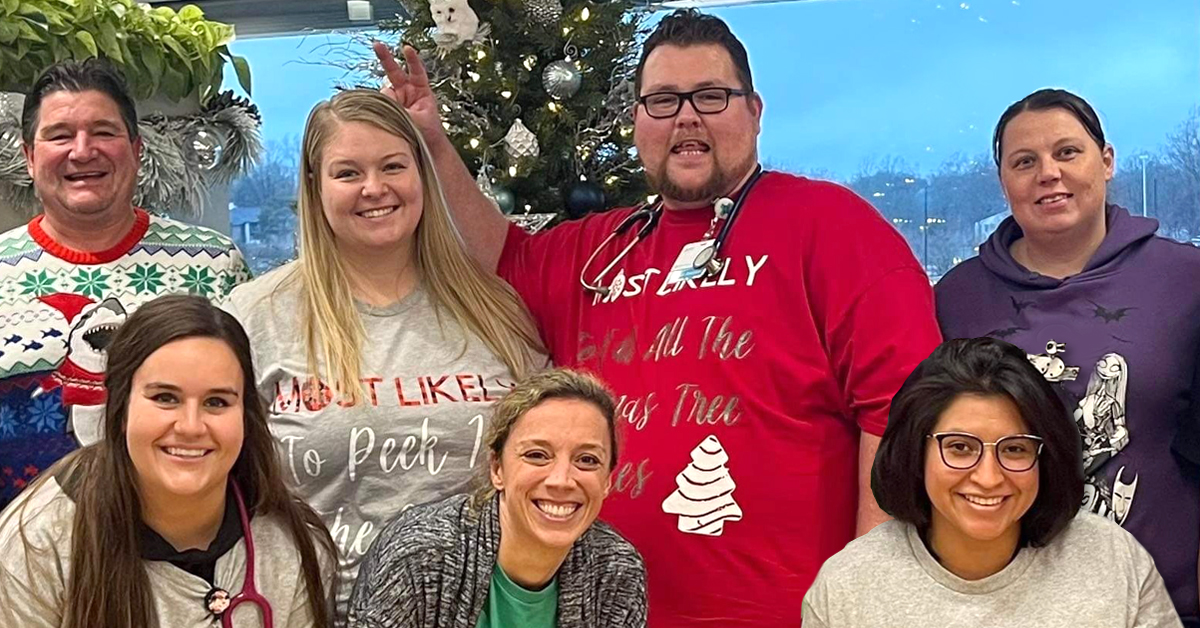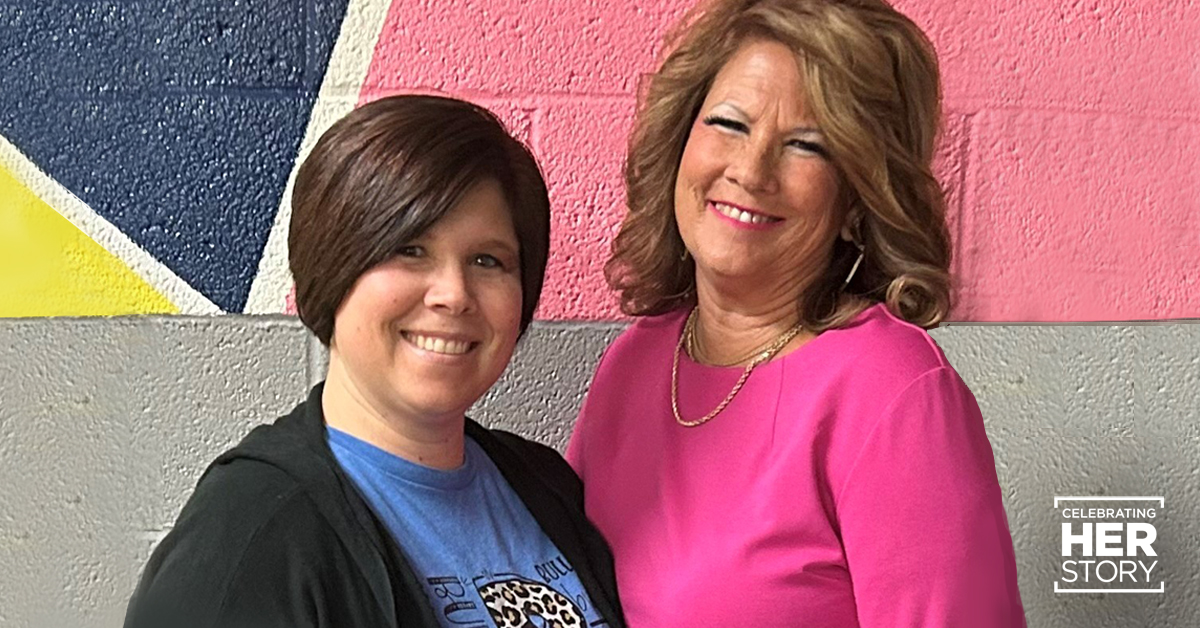Recently, a family group came to Mercy Health – West Hospital after they became sick from eating food they’d foraged in nearby woods. While most of the family members were able to recover with minimal treatment and return home, one remained extremely ill.
“The patient was admitted to the hospital and their liver tests kept getting worse,” Kevin Cronley, MD, (pictured above, right) one of our gastroenterologists, shares. In fact, he is part of Gastro Health and serves as director of endoscopy at the hospital.
This patient was relatively young and there were no other health issues that could explain their worsening numbers. The patient’s health got so bad that Dr. Cronley was exploring putting them on the liver transplant list.
From what the patient said, Dr. Cronley knew that wild mushrooms the family had foraged were the likely cause of the illness. The family had eaten wild mushrooms before without incident, but this time was different.
At about the same time the family came to the hospital, local media started reported cases of people who were getting sick from eating highly toxic wild mushrooms.
“I did some research and called poison control, before starting the patient on N-acetyl cysteine (NAC),” Dr. Cronley says.
Doctors use NAC to treat acetaminophen overdose but there is some evidence it can help protect the liver in cases of acute liver failure.
“We found information on an experimental treatment called Silibin,” Dr. Cronley adds. “Silibin is an extract from milk thistle that helps block the toxicity of mushrooms on the liver.”
The gastrointestinal consult team, hospitalist Mary Harpen, MD, and pharmacist Stephanie Schmutte (pictured above, left) from the inpatient pharmacy at West Hospital worked together to make phone calls and complete the necessary paperwork to expedite the process of securing FDA approval for the potentially life-saving experimental treatment. The FDA overnighted this approval to West Hospital.
“The patient’s liver test was worse that next morning, so we administered it,” Dr. Cronley recalls. “By the next day, the patient’s liver test was better, and we were able to discharge the patient three days after treatment. The patient was in the hospital for a total of six days and was likely progressing to liver failure if we didn’t find and use this treatment.”
Overall, Dr. Cronley is pleased by the happy outcome.
“It’s been a rough three years in health care. I felt proud that so many people, despite all we’ve been through, care and go above and beyond to get patients what they need. In this case, the hospitalist team, inpatient pharmacy and others collaborated to save a life.”
This is the first time Dr. Cronley’s treated a patient with mushroom poisoning, and he has a warning for those who might be tempted to eat a wild mushroom.
“Unless you are very familiar with the local fungi or are a mushroom expert, you need to be very cautious eating wild mushrooms,” he advises. “I’ve seen first-hand how dangerous they can be!”
Contact Poison Control right away if you suspect a poisoning. Help is available online at webPOISONCONTROL® or by phone at 1-800-222-1222.
Learn about the gastroenterology and digestive health services we offer at Mercy Health.






